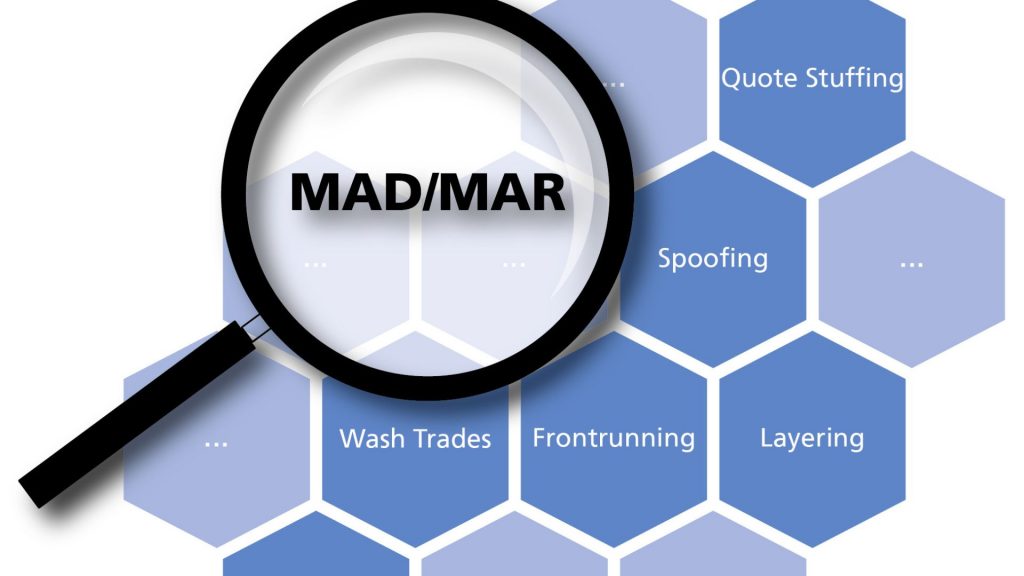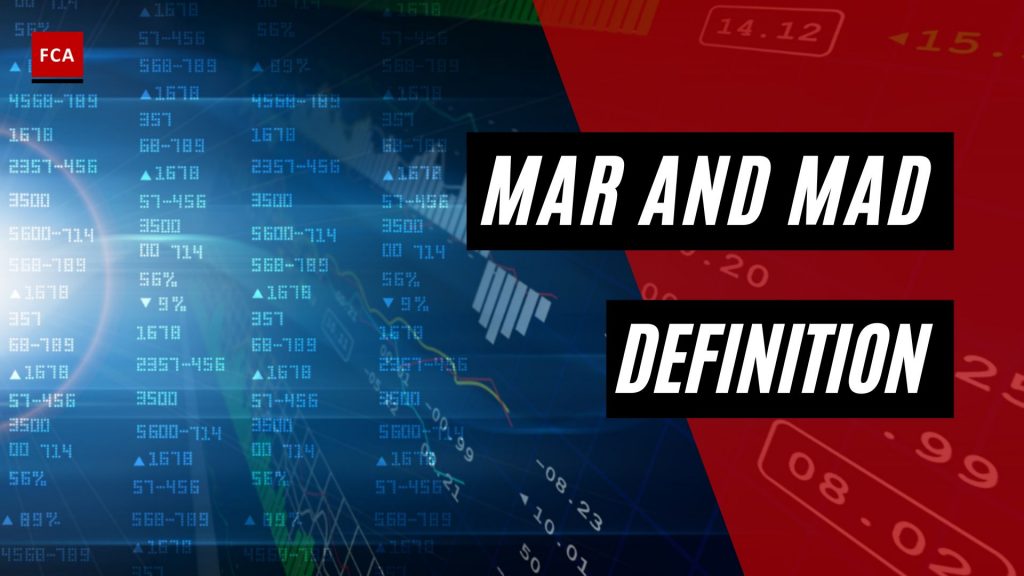The MAR and MAD definition. The Market Abuse Directive (MAD) and Market Abuse Regulation (MAR) will protect European financial markets and boost investor confidence. Any illegal behavior in the financial markets is strictly prohibited. Insider dealing, unlawful disclosure of inside information, and market manipulation are all examples of market abuse.

MAR And MAD Definition: The Market Abuse Regulation And Market Abuse Directive
The Market Abuse Regulation (MAR) aims to ensure the integrity of financial markets and to maximize investor protection across Europe through a combination of new requirements and enhancements to the existing regime. These changes also seek to address some of the shortcomings identified with the regime during the financial crisis, such as the absence of an offense of attempted market manipulation, which is now included in MAR.
MAR requires all the Member States to provide for harmonized criminal market abuse offenses, such as insider trading, market manipulation, and the manipulation of benchmarks. It provides for maximum prison terms of not less than four years for insider dealing and market manipulation and not less than two years for unlawful disclosure of inside information.
MAR Regimes
MAR extends to the following regimes:
- Multilateral trading facilities (MTF) such as a non-exchange trading platform
- Organized trading facilities (OTF) i.e. a multilateral system that is not a regulated market or MTF and in which multiple third-party buying and selling interests instruments can interact in the system in a way that results in a contract
- Over-the-counter (OTC) i.e. where trading is done directly between two parties, without any supervision of an exchange.
MAR prohibits insider trading practices, and as per MAR the following factors may be taken into account in determining whether or not a person who possesses inside information ought to know that it is inside information:
- if a normal and reasonable person in the position of the person who has inside information would know or should have known that the person from whom he received it is an insider; and
- if a normal and reasonable person in the position of the person who has inside information would know or should have known that it is inside information. To be categorized as an insider in article 8(4) of the Market Abuse Regulation, the person concerned does not need to know that the information concerned is inside information.
Certain factors are considered as per MAR to determine whether or not the inside information has been made public, such factors include, whether the information has been disclosed to a market platform through the regulatory rules of that market, or whether the information is contained in records that are open to inspection by the public, whether the information is otherwise generally available to the investors or clients, such as on Internet, and, whether the information can be obtained by observation by members of the public without infringing rights or obligations of privacy, property or confidentiality.
MAR Scopes
The examples of behavior that might fall within the scope of the Market Abuse Regulation are as follows:
(1) the director, while in possession of the inside information, instructs an employee to sell a financial instrument in respect of which the information is inside information; or
(2) a person recommends his or her friend engage in behavior, that would amount to market malpractice.
Market Abuse Directive Or MAD
The Market Abuse Directive (MAD) represents a legal framework whose objective is to protect the financial market integrity and strengthen investor confidence. The implementation of the Market Abuse Directive (MAD) in 2005 resulted in an EU’s market abuse regime and a framework for establishing a proper flow of information to the market.
It is designed to improve confidence in the integrity of the integrated European market and greater cross-border cooperation. The MAD prohibits the selling or buying at the close of the market to mislead those who will act on closing prices. To protect the interest of the investors and, maintain transparency in the securities market, selling and, buying the same financial instruments to create a false impression of activity in the marketplace are strictly prohibited.
Final Thoughts
The scope of application of MAR is not limited to financial instruments that are admitted to trading on a regulated market or for which a request for admission to trading on a regulated market has been made. Financial instruments admitted to trading or traded on Multilateral Trading Facilities (MTFs), financial instruments traded on Organised Trading Facilities (OTFs), and emission allowances are all covered by MAR.
MAR establishes a minimum set of supervisory and investigative powers for national competent authorities under national law, as well as a set of administrative sanctions.








